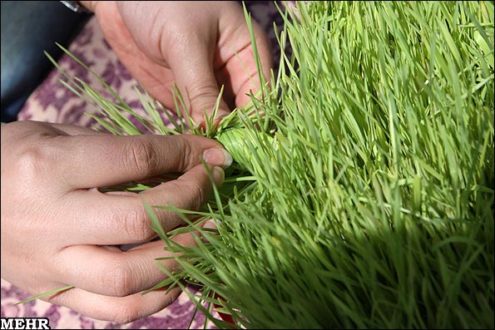Radiofarda – For the first time, an Iranian environmental official has admitted that fertile soil from farms and pastures is being smuggled abroad.
The director-general of the Department of Environment’s (DoE) Office of Water and Soil in Iran, Ali Moridi however insists that the smuggling is relatively controlled.
Although it is the first time that an Iranian government official explicitly admits Iranian fertile soil is smuggled out of the country in recent years, several social media reports had raised the alarm in recent years about smuggling on a massive scale.
In the past, footage of digging and collecting Iranian agriculture soil to be smuggled out were widely circulated on the social media.
Nevertheless, the authorities have dismissed past reports as “fake news” and totally unfounded.
After controversy broke out, there were further reports on social media, claiming that to cover-up smuggling fertile soil, it is sold to UAE and other Arab states south of the Persian Gulf in flower pots, registered as “flower export”.
The reports were so rife that a member of Majles (Islamic Parliament) Agriculture Commission called upon DoE officials last March to seriously look into the claims.
Nonetheless, DoE never responded to the demand, at least publicly.
“Smuggling Iranian farm and pasture soil started in early 2000 (during the second term of pro-reform Mohammad Khatami’s presidency) and has since continued,” Moridi told the state-run Iran Students News Agency (ISNA), without disclosing who is behind the smuggling or how it is done.
The soil smuggled, Moridi noted, is mainly from southern parts of Iran, including the province of Fars.
“The principal destination of smuggled Iranian soil is the littoral states of the Persian Gulf, particularly United Arab Emirates (UAE) and Qatar,” Moridi maintained, adding, “Iranian soil is used for building artificial islands in UAE, and drying up the sea in Qatar.”
Moridi’s comments are published at a time that an official of DoE, Mohammad Darvish says Soil erosion in Iran is so high that it is costing the country $56 billion every year.
Critics say that is hard to believe such large volume smuggling can be done without Iran’s security agencies knowing about it. Why is it being tolerated, is anybody’s guess but for many Iranians it is easy to suspect Iranian officials and even the military to be involved.
On average, soil erosion in Iran is three times more than other Asian countries, and it is one of the highest in the world, the Tehran Times cited Darvish as saying.
“This is while hundreds of thousands of Iranians lost their lives during an eight-year war [1980-1988 Iraq-Iran war] to safeguard the soil, but they are now losing equal to Lesser Tunb [a disputed island in the Persian Gulf] every year only because of adopting wrong policies,” Darvish has lamented.
The head of Iran’s Society of Soil Sciences also says, two billion tons of Iranian fertile soil is lost annually through erosion leaving the country with $56 billion damage each year.
Excessive erosion and degrading have seriously endangered Iran’s soil resources, experts have repeatedly asserted.
The soil is more important than water because 200 to 1,000 years are required to form soil, but there are some ways to turn saline water into fresh water, Darvish has pointed out.
About 10% of the land in Iran is arable.
Rich fertile soil (or good dirt) may become more important to land values than oil or minerals in the ground, experts say. Some even have gone further by saying that it is already a strategic asset on par with oil. Lennart Bage, a development expert and head of Swedish International Development Cooperation Agency believes, “Now fertile land with access to water has become a strategic asset.”
 Shabtabnews In this dark night, I have lost my way – Arise from a corner, oh you the star of guidance.
Shabtabnews In this dark night, I have lost my way – Arise from a corner, oh you the star of guidance.



